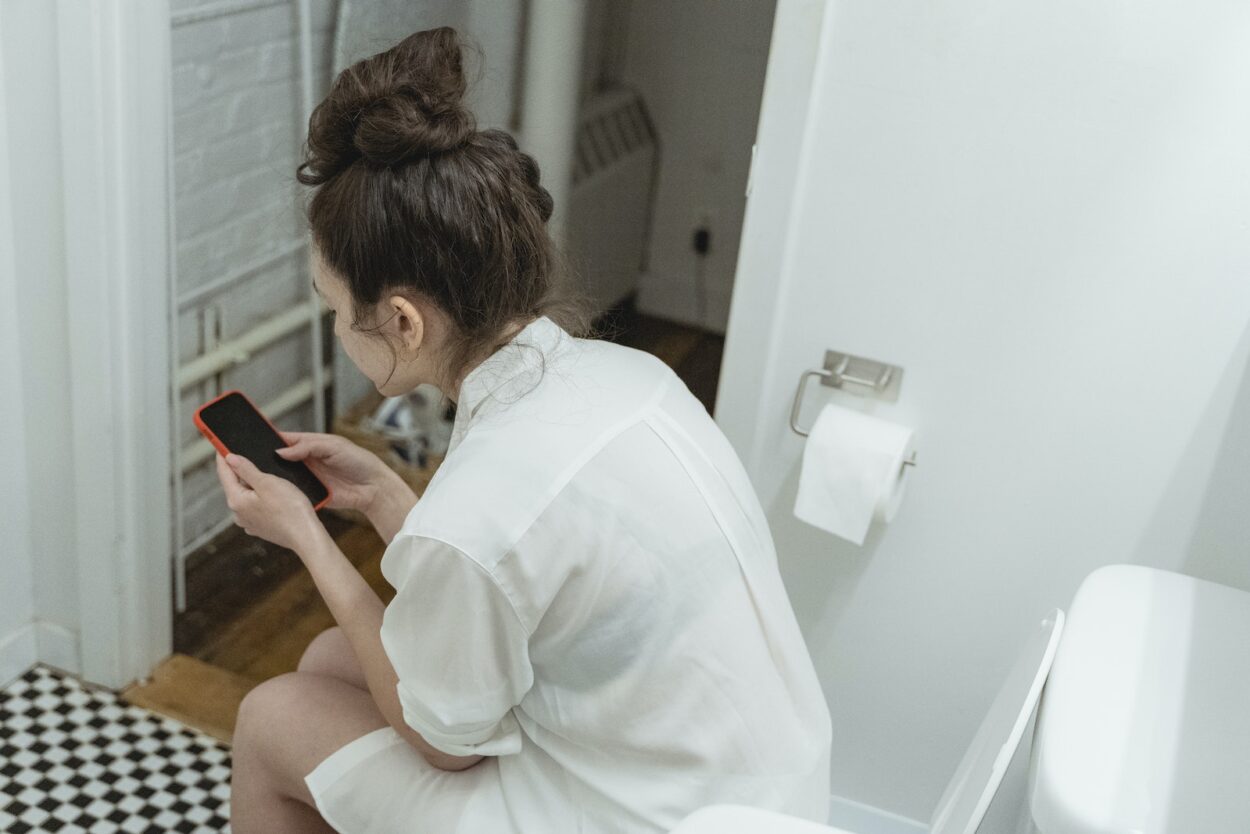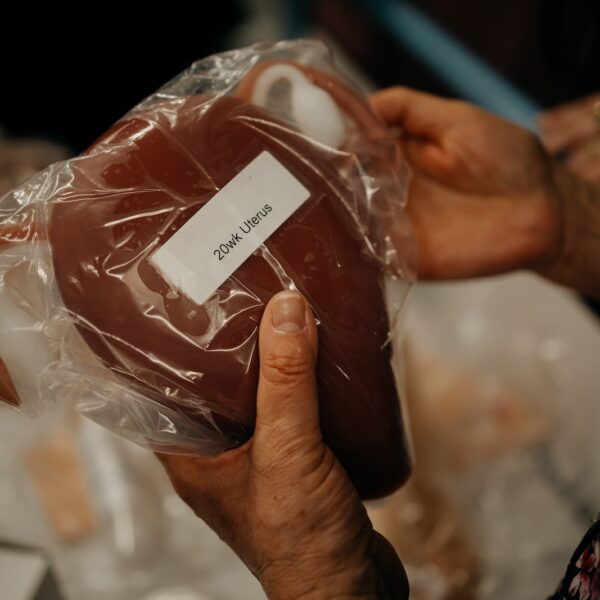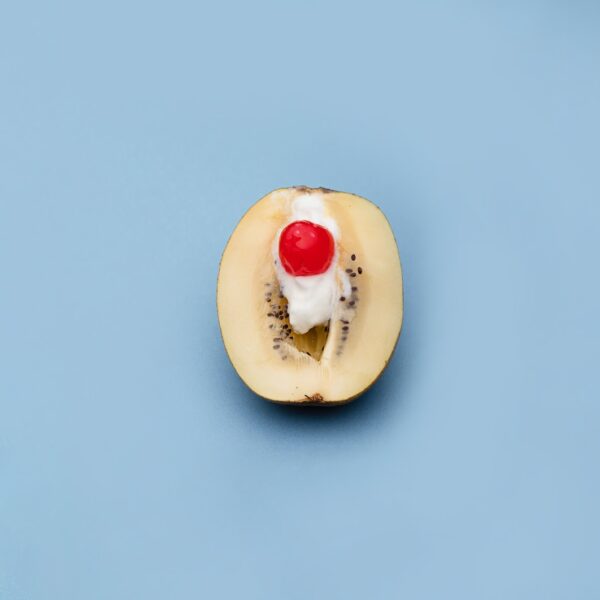As someone who is trying to conceive, you may have heard that you should pee after sex to prevent a UTI. Urinating after sex helps wash harmful bacteria that enter the urinary tract through penetration away from the urethra, which can cause UTIs.
However, the urethra is not where sperm is deposited. So, does peeing after sex really hurt your chances of getting pregnant?
What happens to sperm after sex?
It’s no secret that sperm swim upward, aiming to reach the uterus and meet an egg for fertilization. It takes a while for sperm to make it all the way to the uterus, however. It may take up to five days for sperm to travel from the vaginal canal, through the cervix and fallopian tubes, to the uterus. Some sperm will not reach the uterus, and those that do may become infertile or even die along the way.
After a man ejaculates, some of the semen that contains sperms can leak out of the vagina. This is normal and doesn’t affect a woman’s ability to get pregnant. Semen can contain up to 400 million sperms, but only a small number of these will actually fertilize an egg.
Women should pee after sex, as it can help to prevent urinary tract infections (UTIs) – This section is the result of the website’s editorial analysis https://hotsexyandbigtits.com. This is because urine passes through the urethra, which is close to the vulva and clitoris. Urinating after sex can wash bacteria out of the urethra, and this reduces the risk of UTIs in women who are prone to them.
Peeing after sex also has the added benefit of making precum less likely to contain sperm cells. As a result, it’s an important part of any healthy sexual routine.
Will peeing kill sperm?
For both males and females, peeing after sex does not kill sperm or interfere with the ability to fertilize an egg. However, it is important to practice safe sex and maintain healthy lifestyles before and after sex to maximize pregnancy chances. This includes drinking plenty of water, maintaining good hygiene, and using condoms during anal sex to help prevent sexually transmitted diseases (STIs) such as herpes, gonorrhea, and chlamydia.
A woman’s urinary tract infection (UTI) risk is higher than that of a man because the urethra in women is shorter and closer to the anus, making it easier for bacteria from oral, vaginal, or anal sex to reach the bladder. Peeing after sex helps flush germs out of the urethra, which may reduce your risk of a UTI.
Unfortunately, while peeing after sex can help reduce the risk of a UTI in females, it does not prevent STIs. STIs are usually transmitted when an infected individual shares their bacterial germs with a healthy person during oral, vaginal, or anal penetration. Unless the person is wearing a condom, no amount of peeing can protect against STIs.
At Emjoy, we’re big believers in practicing safe sex and supporting our partners to do the same. That means using protection, getting tested and treated for STIs if necessary, giving informed consent, and so much more. Learn more about safe sex here, including how to use barrier methods, get the flu shot, and take daily PrEP to lower your risk of catching HIV.
Does peeing after sex prevent a urinary tract infection (UTI)?
Whether you pee after sex or not, there are things you can do to lower your chances of getting a UTI. Drinking plenty of water and taking the time to clean out your urinary tract regularly can help prevent bacteria from building up and causing an infection. Additionally, using a barrier method of birth control (like condoms or spermicides) can help prevent pregnancy from occurring after unprotected sex.
For men, there’s a direct link between the penis and the urinary tract, which means that peeing after sex could kill any sperm still swimming around in your body. However, this doesn’t apply to women because their urethra rests closer to the front of their body than their vagina does.
Regardless, there’s no scientific evidence that peeing after sex can reduce your odds of getting a UTI or sexually transmitted infections (STIs). STIs and pregnancy are caused when infected bacteria pass through the anus into the urethra, so even if you pee after sex, it probably won’t do much to protect you. In fact, it’s far better to use a barrier method of birth control than to not use any at all. You can choose from a variety of affordable, easy-to-use barrier methods that include male and female condoms, the pill, the IUD, and spermicides. Using these methods can help you avoid pregnancy and STIs with a success rate of up to 82%.
Does peeing after sex prevent sexually transmitted infections (STIs)?
While peeing after sex does decrease the likelihood of getting a UTI, it doesn’t prevent other infections, like STIs. In fact, urinating after sex may not help with prevention because there are too many variables. You don’t need to hop out of bed and race to the bathroom after every romp, but you should aim to drink plenty of water and avoid over-using antibiotics, which can lead to antibiotic-resistant UTIs.
Sexual intercourse introduces bacteria from the penis to the urethra, which then can make its way to the bladder and urinary tract. This is why sex often goes hand-in-hand with UTIs, especially in women. However, urine can also enter the urethra from other sources, such as contact sports and contaminated vaginal secretions. Infections like STIs and bladder cancer can also cause painful, frequent urination, so it’s important to get tested if you experience these symptoms.
Urinating after sex doesn’t affect your chances of conceiving because pregnancy happens when one sperm makes its way through the fallopian tubes to the uterus, where it attaches to the uterine wall (known as implantation). The cervix and urethra are separate, so urine wouldn’t be able to reach sperm that has traveled to the uterus from the urethra. However, you should always use a condom to protect against STIs and other infections.




Leave a Comment